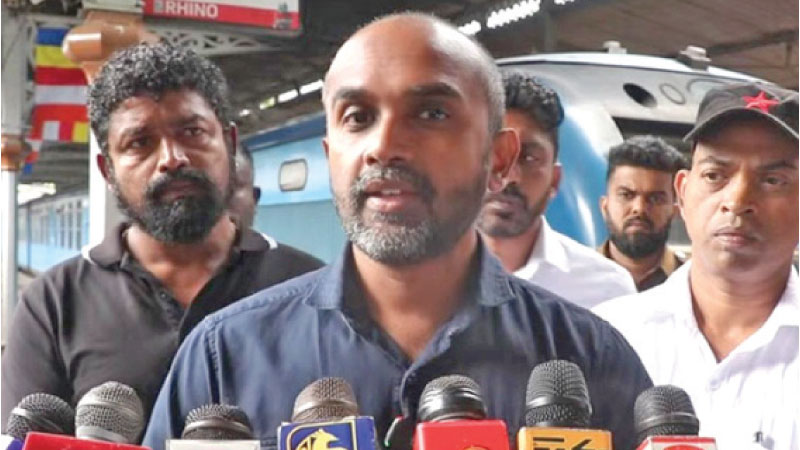Sri Lanka is embarking on an ambitious journey to overhaul its public transport system, with Deputy Minister of Transport and Highways, Dr. Prasanna Gunasena, outlining a comprehensive plan to modernise services, enhance efficiency and improve accessibility.
Speaking to the Sunday Observer, Dr. Gunasena detailed several initiatives spanning fleet upgrades for buses, critical reforms for the railway sector and the introduction of a digital cashless payment system, alongside efforts to promote road safety and inclusivity for women and the differently-abled.
Acknowledging the dilapidated state and high fuel consumption of the Sri Lanka Transport Board (SLTB) bus fleet, Dr. Gunasena outlined a multi-pronged approach to inject new life into public road transport.
President Anura Kumara Dissanayake has initially allocated Rs. 300 million for the import of low-floor buses, with Cabinet approval already secured for the first five, currently in the international bidding process.
Super luxury buses
Recognising the profitability of highway routes, the SLTB will also independently fund the acquisition of 200 super luxury buses for these high-demand corridors and also for highway operations.
The ‘Clean Sri Lanka’ initiative is also contributing to high quality bus imports.
These new, fuel-efficient buses are expected to significantly uplift service quality and profitability for the SLTB. They will initially be deployed within Colombo City limits to encourage public transport use and alleviate traffic congestion. Alongside new procurements, an immediate strategy involves repairing and upgrading around 600 non-operational but repairable SLTB buses across the island’s 107 depots within the next six months. This rapid revitalisation aims to quickly increase the operational fleet.
Police are also checking all buses, private and public, for their roadworthiness after several serious accidents including the one at Gerandi Ella, which claimed 23 lives.
Addressing a critical human resource challenge, Dr. Gunasena shed light on the acute shortage of drivers and conductors at the SLTB. The Ministry has identified SLTB employees performing alternative duties due to past political changes and is reinstating them as drivers and conductors after medical assessments and refresher training. This initiative has resulted in 45 former drivers being re-recruited, with plans to fill the remaining cadre requirements for drivers, conductors and technical staff by the end of the year.
Combined timetable
To combat reckless driving and fierce competition among bus operators (State and private), the Ministry is introducing a combined timetable system, starting with the Colombo-Puttalam-Jaffna route.
This comprehensive timetable will standardise departure and arrival times of SLTB and private buses, even dictating designated rest stops and restaurants along the way, which will be inspected for quality and cleanliness by Ministry officials and Public Health Inspectors (PHIs).
A mandatory GPS tracking system for all buses, private and SLTB (with the National Transport Commission sponsoring 2,000 devices for the latter), will enable central monitoring, aiming to drastically reduce speeding and dangerous driving.
Digital payment system
A major leap towards digital transformation in public transport is the planned introduction of a cashless digital payment system. A pilot project for SLTB buses is anticipated within the year, permitting commuters to use any bank card (debit or credit) for ticket payments. This initiative aims to address an estimated daily leakage/pilferage loss of Rs. 10 million in the SLTB due to cash transactions, ensuring greater transparency and accountability. The Ministry of Digital Economy will oversee a common platform for all public transport payments, with full integration for bus and train services envisioned in the long term. There could also be prepaid cards for the convenience of tourists.
Railway sector
The struggling railway sector is also a key focus. Dr. Gunasena outlined a three-pronged strategy: minimising train cancellations, ensuring punctuality and enhancing passenger comfort.
With only 51 out of 108 operational engines deployed daily and a significant number of power sets sent for repairs, increasing the operational fleet is paramount. The critical shortage of 1,000 workers at the Ratmalana main workshop is being addressed through a new recruitment drive with a Prime Ministerial sub-committee approval, although administrative delays pose a challenge.
Addressing chronic delays, which see over half of train services running more than 30 minutes behind schedule, the Ministry is targeting engine failures, signal issues, dilapidated tracks (with budget allocations for new rail track imports) and parcel handling inefficiencies.
Passenger comfort is also being prioritised with ongoing procurement for improved seating and fans and five new power sets. Staff shortages across all railway roles are being addressed with the approved recruitment process.
Beyond operational improvements, the Ministry is championing inclusivity and safety, with special consideration for transport access for the differently-abled. A help desk has been set up at the Makumbura bus terminal to assist visually and auditory impaired people with travel information. The deployment of low-floor buses with in-built ramps will enhance wheelchair accessibility and all bus bays are slated for similar upgrades. Since railway accessibility requires a significant infrastructure overhaul, it remains a long-term goal.
For the safety and inclusion of women, the Ministry is expanding specialised services such as Sisu Seriya (schoolchildren), Gemi Seriya (rural areas) and Nisi Seriya (night-time transport), all provided free by the National Transport Commission.
Importantly, there are plans to recruit female drivers and conductors for school bus services and to train women as train drivers, signifying a significant shift towards gender diversity in the transport sector. This is fairly common in most countries, including in Asian countries such as Singapore.
Dr. Gunasena emphasised the long and challenging road ahead, particularly the lack of a comprehensive National Transport Policy (NTP) to guide long-term targets. However, he stressed the Ministry’s commitment to lay a strong foundation for a modern, efficient and accessible public transport, including a future transition towards renewable energy with the new buses being registered under a new company named Metro, operating under the SLTB.
Through these measures, the Ministry aims to transform Sri Lanka’s public transport network into a reliable, efficient, and inclusive system, though challenges such as bureaucratic delays and funding constraints remain significant hurdles for the time being.






